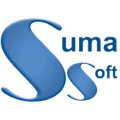Why Every Hospital Should Have A New-Age Healthcare Management System?


Technological innovations have smartened the processes involved in diverse industry verticals and the healthcare sector is no exception. A modern-day medical facility is expected to possess smart tools like a health management system to streamline workflow; medical software for doctors to ensure error-free diagnoses and treatment; and patient management system software to provide prompt services and deliver a rich patient-experience. The key requirements of a smart medical facility are as follows:
- A self-automated patient scheduling procedure.
- Online assistance and e-prescriptions for patients.
- Storing and maintaining health data and medical reports of patients digitally.
- Incorporating HIPAA compliance in your healthcare management system, mHealth app and other healthcare solutions to secure sensitive medical data from potential threats.
Smart healthcare solutions are the need of the hour as they not only add to the convenience quotient of practitioners and patients but also prove advantageous for the medical facility. Modernized healthcare management systems help medical organizations to deliver the highest standards of patient care and effectively manage patients and staff. This blog pens down the reasons why healthcare providers should consider adopting a smart healthcare management system.
Before we dive deeper, let’s take a look at what a smart healthcare system is.
Smart Health Management System
Healthcare management software refers to an all-inclusive solution that caters to diverse management requirements of patients, physicians, and providers unanimously. The commonest applications include Electronic Medical Record software (EMR), Electronic Health Record software (EHR) and Practice Management Software (PMS). These software solutions enable effective communication between doctors and patients, generation of e-prescriptions, maintenance of billing records, maintaining patient data digitally, online appointment-scheduling, management of doctor-schedules, and many more.
Key Advantages of Health Management System
EHRs and EMRs: Digitalization of Healthcare Records
Traditional record-keeping involving a huge amount of paperwork is being replaced by digital healthcare records. Electronic Medical Records (EMRs) and Electronic Health Records (EHRs) are employed for this purpose. These software systems ensure the proactive collection and maintenance of medical data. Patient data such as prescriptions, health reports, medical history, etc. are stored in a centralized system and can be accessed whenever needed. The usage of digital record maintenance assures data accuracy. Additionally, these systems are made HIPAA compliant to ensure the safety of sensitive data and to avoid the data violation protocol. Click here to know more about HIPAA Compliance.
Online Appointment Scheduling
The HMS is multitasking. It functions as a patient scheduling system by enabling the patients to book online appointments based on the slots provided by practitioners. Besides booking appointments, the patients can also reschedule or cancel appointments. Doctor appointment app solutions help the doctors to view weekly calendars displaying the doctors’ appointment-schedule and hence can book appointments themselves in case of referrals.
Strengthening the Doctor-Patient Bond
Effective doctor-patient communication is crucial for collecting more specific details from patients, establishing trust amongst the patients and providing them the much-needed psychological support to make them feel cared for. Hospital Management Systems open up multiple options for online doctor-patient interaction like calling, messaging, personal chatting, etc. These communication channels help in strengthening the doctor-patient bond and lead to more productive outcomes.
Digital Calendar for Doctors
Appointment scheduling, rescheduling and cancellation is an integral aspect of every healthcare facility. However, managing doctor appointment schedules is a challenging task and chances of errors are likely. But the advent of management system software has eased things considerably. This system has physician schedule management that displays the appointments in the form of a digital calendar. As such, doctors can effortlessly view their own schedule as well as those of the other doctors. This simplifies the tasks of adding, re-scheduling, and cancelling of appointments. Moreover, this software sends them reminders about appointments well in advance. Therefore, digital calendars are productive tools that save time and effort.
Improved Decision-Making
The use of a Practice Management Software (PMS) boosts the accuracy and effectiveness of operational decision-making in a medical facility. The reasons are:
· Tracking of important medical data
· Reduced documentation errors
· Improved data security
· Employment of automated functions such as scheduling appointments in available slots, remote patient monitoring, sending reminders, etc.
Final Verdict
Thus, the employment of a smart Healthcare Management System assists the medical facility to handle mundane operational processes effortlessly. Reaping the benefits of digital systems for hospital management and automation tools for executing healthcare operations; enables service providers to grow exponentially and reach new heights of success. So, every health facility, whether big or small must adopt hospital and patient management systems to expand their patient base and hence gain a competitive edge over peers.
I hope this blog was helpful. Did you face any challenges while managing your hospital functions? Do share your experiences in the comments section below and let us know if you have any queries.
Other articles and publications:
Articles and publications of other companies:
- +1 (469) 277-0804
- 8305 Tripoli Trl, Frisco, TX 75034, United States
- www.biz4solutions.com/










